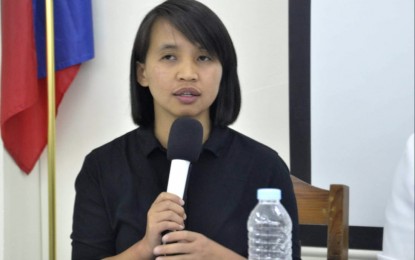By Liza Agoot with reports from Aiza Caramto, OJT/Philippine News Agency

BAGUIO CITY — The Department of Health in the Cordillera Administrative Region (DOH-CAR) is dead set on further lowering the dengue cases in the region as it reminded the public to clean their surroundings.
Karen Karen Lonogan, DOH-CAR Health Program Officer, on Tuesday said the DOH continues to advocate the 4 p.m. habit pushing for the adoption of the practice: “stop, look, and listen”.
“’Stop’ means dropping everything and shifting current task for mosquito control, when the clock strikes 4 p.m. Every person must ‘look’ for the breeding sites of dengue-carrying mosquitoes and carry out systematic search and destroy activities to eliminate them and ‘listen’ entails heeding the instructions from local authorities, community leaders or work supervisors for a synchronized implementation of the 4 o’clock habit.”
Lonogan said they also advocate the 4S for “search,” “secure,” “seek early consultation,” and “support fogging or spraying”.
“Search and destroy mosquito breeding places, secure self-protection, seek early consultation and support fogging or spraying only in hotspot areas where increase in cases is registered for two consecutive weeks to prevent impending outbreak,” Lonogan said.
Destroying all possible breeding places of mosquitoes will also help prevent the spread of the disease.
“We advise everyone to drain all possible source of mosquito breeding area, especially our vases at home and those stagnant waters on our backyards, and let our child be vaccinated in order to prevent dengue,” Lonogan said.
On the rise
Lonogan said report of the Regional Epidemiology and Surveillance Unit (RESU) shows an increase of 76 percent in cases from January 1 to April 20, 2019 compared to the same period in 2018.
“Comparing last year’s data, the number of dengue reported cases increased to 76 percent, making it 1,681,” Lonogan said.
In 2018, there were 957 dengue cases recorded in the Cordillera.
Most cases were recorded in Benguet with 366 cases, Apayao with 364 cases, Ifugao with 173, Mountain Province with 133, Kalinga with 128, Abra with 155 and Baguio City with 80 cases.
There were three deaths, both in 2018 and 2019.
Lonogan said based on record, children have higher risk of acquiring dengue.
“Ages ranging 13 years old and below are most prone to have dengue because they are active when it comes to physical activities outside their homes where they can get the disease, also inside their respective schools,” Lonogan said.
For the latest updates about this story, visit the Philippine News Agency website
